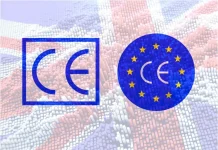As long as 20 years ago, the German government decided to introduce the electronic health card. Prescriptions, doctor’s letters and even X-ray findings should be able to be stored on the card and taken to the next specialist. All insured persons have received the new cards, but the possibilities of data storage and transmission have not been used to date.
Furthermore, medical records, for example, are sent by letter post, and findings are faxed or transmitted as e-mail attachments. This means that there is no overview of who currently has which status of the data, whether the data is up to date or whether it will also be deleted after the treatment has been completed. All of this would be easily solvable with current digital technology and cloud storage.
There are many reasons for the lack of digital progress. Physicians’ and pharmacists’ associations oppose investment. Privacy sees unanswered questions and does not weigh health benefits against potential privacy limitations. Industry standards and norms are lacking, so solutions from different vendors are not compatible with each other. An EU-wide regulation on all this seems unthinkable and unattainable at present.
However, the fact that current Corona case numbers and vaccinations are still being recorded, reported, and compiled through analog means, and therefore current numbers are still missing on holidays and weekends, is difficult to bear. Solutions for this could be implemented in a very short time via common cloud platforms and could also be used immediately everywhere without installing software.
Yellow vaccination cards, which require bureaucratic effort and are easy to forge, are also an analogous relic of the past. A digital immunization registry, including app access to it, would have been easy to create if there was a common will and assumption of responsibility.







